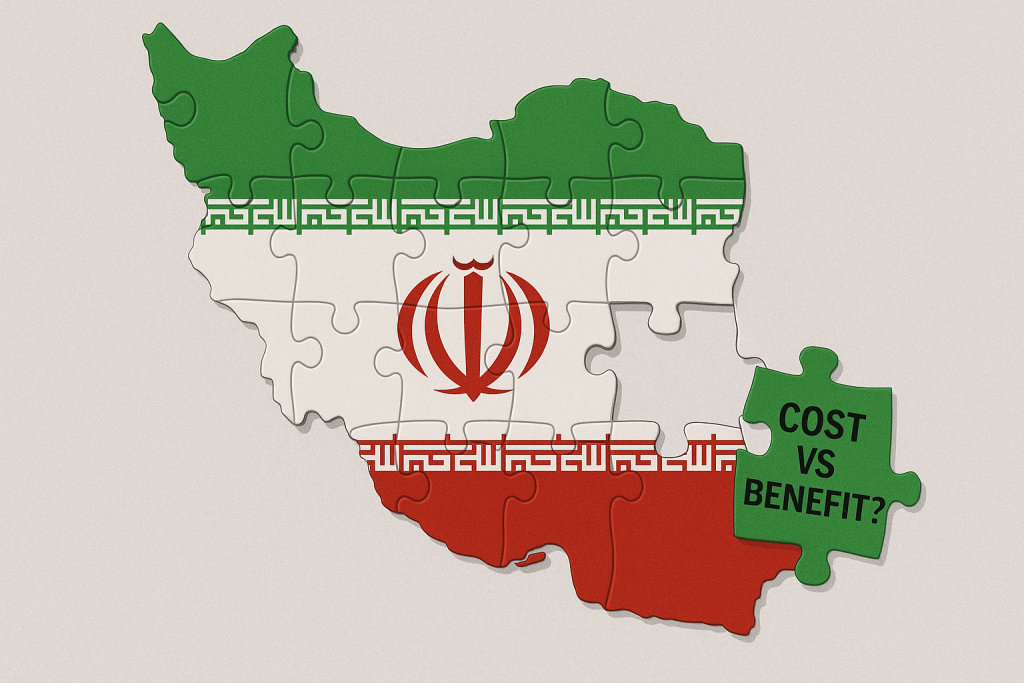When Sextus Julius Africanus was born in the city of Jerusalem around the year 160 AD, the Roman Empire was still near the peak of its power.
By the time Sextus was born, Antoninus Pius had ruled the empire with a steady hand for more than twenty years; his reign was peaceful and highly effective, and he left behind a strong economy and vast public treasury.
The following year in 161 AD, when Sextus was still just a baby, Marcus Aurelius became emperor and ruled wisely for nineteen years as an assiduous, diligent philosopher king.
Sextus was a young man just starting to make his way in the world when Marcus Aurelius passed away in 180 AD. And this is when things really started to unravel in Rome.
Marcus Aurelius was followed by his complete dirt bag of a son, Commodus (who was probably every bit as evil and insane as he was portrayed in the film Gladiator).
Commodus ruled brutally for twelve years until his assassination in 192 AD, after which several more emperors rose to power and were assassinated within a matter of months.
Finally Septimus Severus rose to power in 193 AD and ruled for 18 years; he nearly bankrupted the empire with his constant warfare and expansion of the state, and he heavily debased the denarius coin from 81.5% silver to 54% silver.
Septimus Severus was succeeded by his son Caracalla, whose first order of business was to murder his brother… and then further debase the currency and bankrupt the treasury.
Caracalla was assassinated after six years and succeeded by Macrinus, who himself was overthrown and executed barely a year after becoming emperor.
Macrinus was succeeded by the sexually tormented adolescent Elagabalus, who is purported to have offered half of the empire to any doctor who could turn him into a woman.
Elagabalus was slain after four years in power, then succeeded by his cousin Severus Alexander. His 13-year reign was marked by a massive border crisis and further debasement of the currency; but most notably, during the reign of Severus Alexander, his imperial troops began running wild outside of the law and began indiscriminately assassinating anyone they wanted.
By the time Severus Alexander himself was assassinated in 235 AD, the young baby boy I told you about in the beginning of this letter– Sextus Julius Africanus– was 75 years old.
Sextus was born at the end of the Roman Empire’s period of dominance. And throughout the course of his life, he witnessed and lived through Rome’s gradual– then sudden– decline.
As a child and young adult, Sextus lived in a Rome that was powerful and unparalleled, and he enjoyed an incredible era of peace and prosperity.
By the time he entered adulthood, the cracks were already visible. Inflation grew rampant. The economy began stagnating. Multiple pandemics had taken place. The barbarians started flooding across the border. The treasury was depleted. And the imperial government became completely dysfunctional, incapable of even basic administration or responsibility.
Sextus Julius Africanus experienced all of this decline first hand. It must have been exasperating. And frankly, many of us today can probably empathize.
When I started Sovereign Man back in 2009, I had a very clear thesis in mind: the United States (along with the West in general) is in decline.
Back then that was a controversial statement to make. Today it’s painfully obvious.
What’s more, the decline seems to be accelerating, conforming to the mathematic model of logarithmic decay; it’s similar to how Hemingway described going bankrupt in The Sun Also Rises: “gradually, then suddenly.”
And we can see it just about everywhere.
From a fiscal perspective, the US is a complete train wreck. The national debt is about to pass $32 trillion as I write this, equivalent to roughly 122% of GDP– a record high.
On top of that, though, the government continues to overspend by trillions of dollars each year, making the debt problem even worse. And Social Security’s trust funds are set to run out of money within ten years.
The currency is also in the dumps. The Federal Reserve debased the US dollar as heavily as the Romans debased their own currency, causing rampant inflation.
Plus, between the Fed’s incompetence and the US government’s irresponsible spending, the dollar is on the verge of losing its status as the world’s dominant reserve currency.
Socially we can see the country coming apart as well. Socialism is on the rise. Cancel culture and censorship reign. Sociopolitical divisions are high.
The education system is crumbling… and the teachers’ unions couldn’t possibly care less. Homeless and crime rates are appalling. Public trust levels are at record lows.
Many politicians at the highest levels are either stupid, incompetent, corrupt, dangerously narcissistic, medically unfit, or all of the above. And the most recent debt ceiling fiasco shows their ineptitude to even be able to negotiate a timely solution among themselves.
Throughout all of this chaos, tensions with Russia, China, and Iran are on the rise… while the US military is being weakened by woke politics, fiscal mismanagement, and terrible leadership.
It seems like every few days there’s another major embarrassment… from a guy who never met a staircase he can’t fall up, to the humiliating withdrawal from Afghanistan, to a major crisis in the US banking system, to ‘mostly peaceful’ protests, to the debt ceiling soap opera.
And every one of these emboldens America’s adversaries.
Many of us are old enough to remember a time when such things were unthinkable, when America’s reputation for strength was unquestionable.
But these days, a major, national humiliation is just another Tuesday afternoon in the Land of the Free.
It’s exasperating. And Sextus Julius Africanus probably felt the same way, shaking his head in disbelief as he lived through the decline.
To be clear, even despite America’s gargantuan challenges, it is still possible to solve these problems and navigate out of this mess. And the basic ideas are quite simple: Capitalism. Productivity. Fiscal restraint. Self-reliance.
But the people in charge don’t seem to have a clue what they’re doing. And this is why it makes so much sense to have a Plan B.








